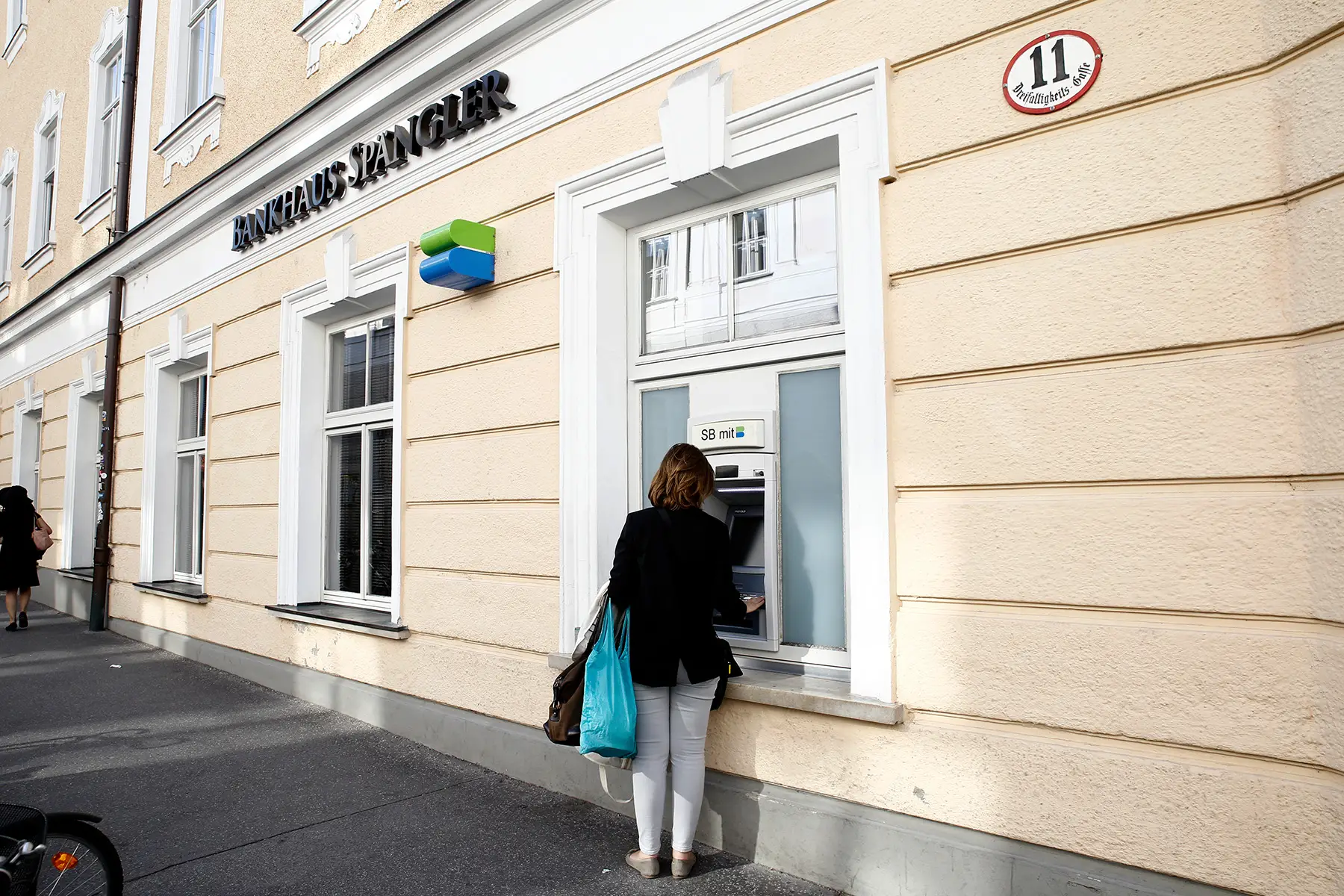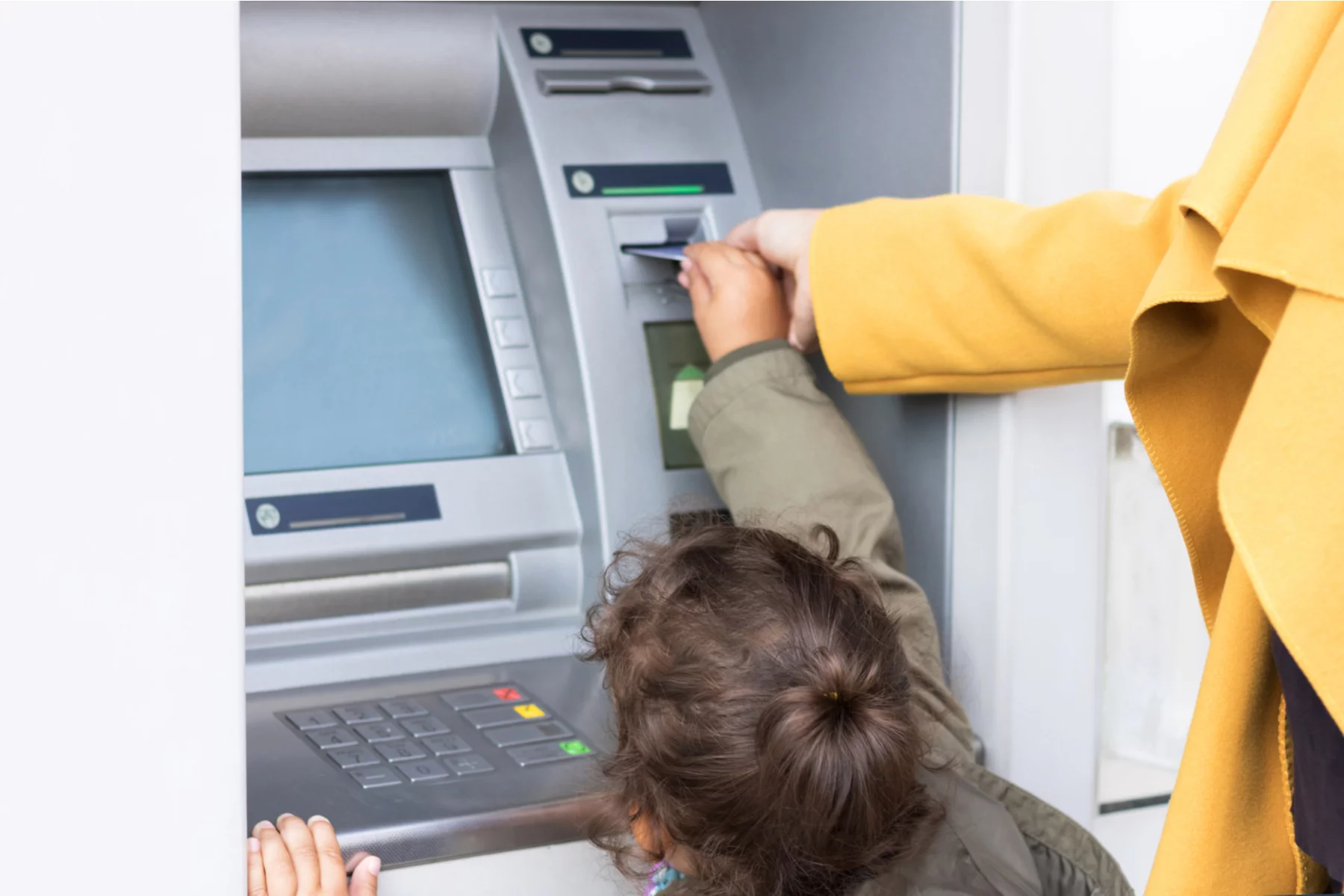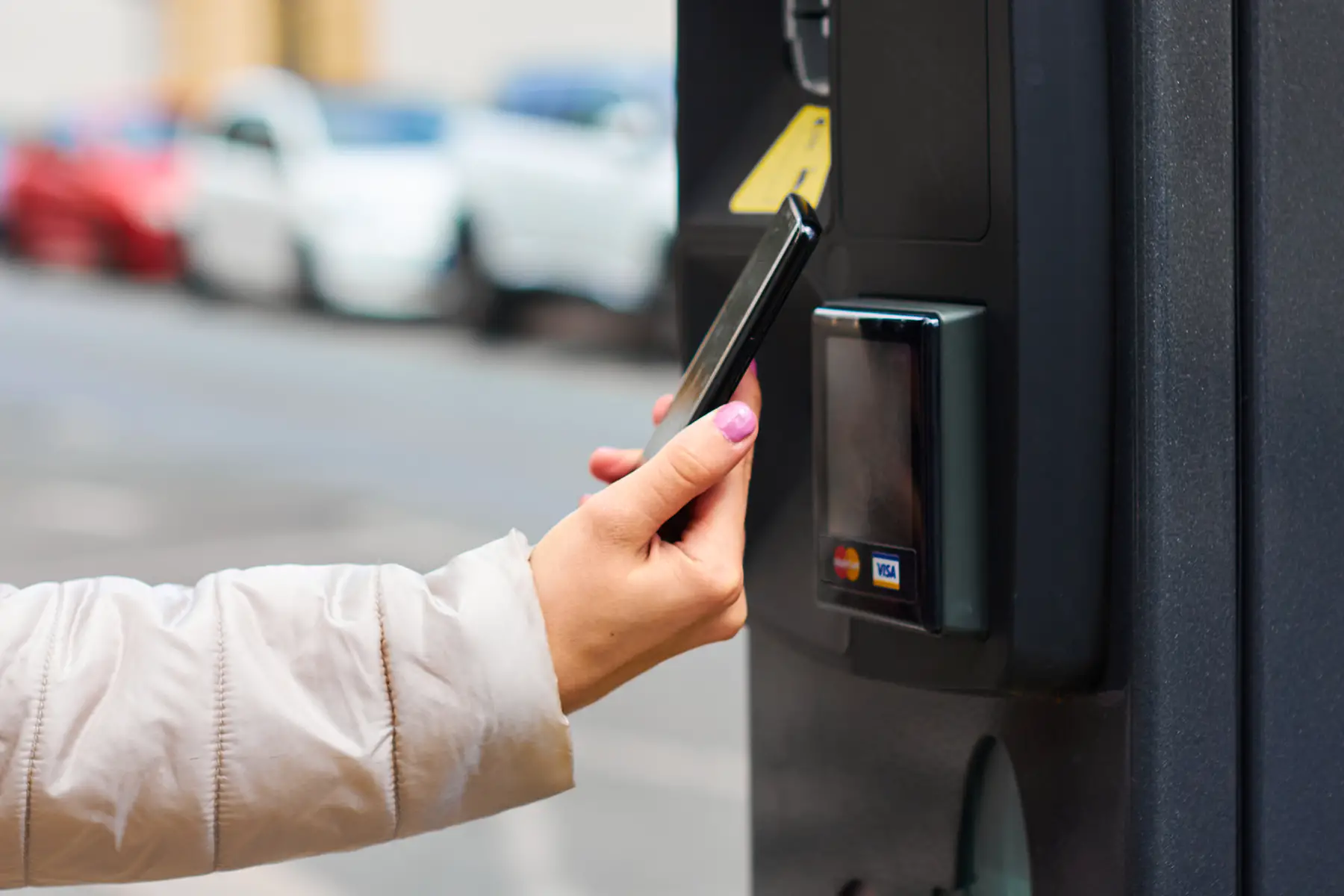One of the first things you will need to arrange when moving to a new country is opening a local bank account. This will allow you to easily organize your finances and begin enjoying your new home. Whether you require business banking, a personal savings account, or are looking to set up cross-border international banking, you will want to explore your options. You might also want to look into offshore banking and international money transfers.
But before you get to that, here is everything you need to know about opening an Austrian bank account, including the following information:
- Banking in Austria
- Do you need an Austrian bank account?
- Before you open a bank account in Austria
- Types of bank accounts in Austria
- How to open an Austrian bank account as an expat
- What to do if you are refused a bank account in Austria
- Choosing a bank account in Austria
- Austrian banking services
- Changing banks or closing an Austrian bank account
- Useful resources
Banking in Austria
With over 700 banks in Austria, the country’s banking system is known to be a stable and low-risk place to keep your money. Furthermore, EU rules protect the money in your bank account if, for some reason, your bank collapses. This includes both savings accounts and current accounts.

Your money is protected up to a limit of €100,000 or the equivalent in local currency. This limit applies per person and per bank. You can find out more about banks in Austria in our handy guide.
Do you need an Austrian bank account?
Potentially, if you have a bank account in another EU country, the answer may be no. Notably, in Austria, it is easy to have your salary, mortgage, loans, and insurance paid out of, or into, another bank in the European Union. That said, if you are from a country outside of the EU, and you are planning on staying in Austria for a lengthy period of time, it would be prudent to set up an Austrian bank account. This is particularly true if you wish to apply for a mortgage at any point, or purchase real estate.
Before you open a bank account in Austria
Euros are typically the only accepted form of cash payment in Austria, therefore, it won’t be very easy to use foreign currencies while living in the country. That said, you will find that most international credit and debit cards are accepted at every major retailer. Additionally, foreign money and Euros can be brought in without any restrictions; therefore, you can bring cash with you and exchange it at the airport.
Even if you have opened an Austrian bank account, it may still take a few business days before you receive your Bankomatkarte (debit card) in the post. Therefore, you may want to know how you can access cash when you first arrive in the country. In certain circumstances, some banks in Austria allow you to open a bank account from abroad, but not always.

For instance, Bank Austria allows other UniCredit members to open a bank account from abroad. You simply need to fill in their standard request form if you are a UniCredit member already. Erste Bank also states that it welcomes non-residents to open an account.
Types of bank accounts in Austria
Similar to several other EU countries, the following types of bank accounts are available in Austria.
Current account
The Girokonto (current account) is the most popular type of bank account in Austria. It is for personal use and is part of retail banking. Current accounts include a debit card which allows you to access ATMs. Typically, they also come with an overdraft facility. You can set up standing orders or direct debits and you can transfer money both locally and abroad from your current account. You can also have a linked savings account. Cheques are available, however, these are used less and less in Austria these days.
Savings account
A Sparbuch (savings account) is a secure way to store your money for short-term saving. It rarely even covers inflation, but it is a good option if you want to simply squirrel away some money for a rainy day.
Joint account
This type of bank account is designed for couples, and therefore, you will typically get two bank cards for one account you share. You can also get instant notifications when there is activity on your shared account. Noting all your transactions together is meant to make it easier to budget in the long run.
Credit card
Usually, Kreditkarte (credit cards) are issued from a variety of companies such as Visa and Mastercard. These aren’t covered by ordinary bank account fees, so you may have to pay extra. A credit card needs to be approved by your bank and most will only issue one to a pre-existing customer.
How to open an Austrian bank account as an expat
Firstly, to open a bank account in Austria, you need to have the following documents at hand:
- your proof of identity (for example, your passport)
- proof of residency (such as a Residency Registration Form or utility bills)
- your proof of employment (such as an official job contract)
If you are an EU/EEA national, you will find that opening a bank account in Austria is much simpler than third-country nationals. Certain banks, such as Erste, allow non-residents to open accounts. Additionally, foreigners are able to manage funds in all currencies, get the latest exchange rates, and make credit transfers in foreign currencies. However, you will need to go to the bank in person to apply for this.

Some of the most popular international banks available in Austria are Deutsche Bank, CitiBank, and Western Union Bank.
If you decide to apply for a bank account online, you will need to verify your identity by providing a PostIdent. In this regard, there are four ways to verify your identity:
- eID – For this option, your personal information and ID card is sent over the internet
- Photograph – You provide a photograph and record a video clip of your face to verify your identity
- Video chat – You input personal data and use your webcam to call a Video-Ident call center agent. They will take your picture and verify your identity.
- Post office – You can visit a post office in person, with your personalized Postident generated by the Postident portal
Typically, you can expect your bank card to arrive in the post within four working days. Ordinarily, you will also receive internet/mobile banking access with your account.
Mobile and online banking in Austria
Mobile and online banking are fast becoming the norm for all banks in Austria, particularly under the COVID-19 restrictions which encourage less face-to-face banking services. In fact, most of the banks in Austria offer mobile banking to their customers.

If this is your preference, you have options to open your account as well as manage all your finances on your mobile. In Austria, mobile payments are worth about €2.192 billion a year.
Fortunately, Austria has several digital banks that allow you to set up a bank account and manage your finances entirely through your phone. Digital-only banks in Austria include:
Meanwhile, big banks, such as Bank Austria, offer mobile banking as part of their all-encompassing services.
Opening an Austrian corporate bank account
In Austria, there are retail, corporate, and investment banks and there is often overlap. For example, DenizBank AG provides retail and corporate banking, while Deutsche Bank offers corporate and investment banking and deals exclusively with corporate clients; including small businesses and large corporations. Generally, they offer services like trade finance, loans and credit, equipment lending, and commercial real estate. Typically, banks offering corporate accounts require you to make an appointment. When you make the appointment, they will tell you what documentation you will need to bring along with you.
How to open a bank account in Austria for your children
Youth banking in Austria is supported and well-facilitated to start children off early with a sense of financial responsibility. Most of Austria’s biggest banks offer free accounts for children from the ages of 10 to 18. For instance, Erste Bank offers a spark7 account that is overseen by parental figures until the age of 18 when the child gains full legal capacity.

Similarly, Bank Austria’s MegaCard is a debit card for young people. Typically, these cards have no overdraft facility and are simply free accounts to allow for cashless payments. You can easily apply for them online.
What to do if you are refused a bank account in Austria
Generally, if you are a legal resident in any EU country, you are entitled to open a basic payment account. In Austria, a bank cannot refuse to open your account simply because you don’t live where the bank is established. However, this right doesn’t extend to savings accounts and other types of bank accounts. Additionally, a bank may refuse to open your account if you don’t fulfill the requirements of the EU rules on money laundering and terrorist financing. However, if you feel you have been treated unfairly, it is possible to take the issue to the out-of-court dispute resolution scheme.
Choosing a bank account in Austria
Decisions, decisions. Shopping for a bank should be no different than any other important life decision. It will likely be your service provider for a decent length of time, therefore, you want one that works for you. Primarily, this means having a bit of a look around to find a good fit.
For example, you may want to look into banks that offer a high level of English-speaking tellers. Or perhaps you prefer to look into a recognizable international bank such as Western Union. Or you may wish to investigate the plethora of online banks that are arising in the nation. Additionally, ethical banking may be your priority, in which case, you have chosen the right country to open an account. Fortunately, as a result of the high level of regulation, most Austrian banks already operate with a high level of ethics.

Additionally, many banks in Austria have robust sustainability and corporate social responsibility (CSR) programs. For instance, Bank Austria institutes sustainability measures throughout the company along with environmental initiatives. It also has well-rounded cultural programs to benefit the citizens of Austria. Typically, most banks in Austria engage in similar initiatives.
On a day-to-day basis, one of the most important factors will be if your bank account charges you to withdraw money. Choosing a bank that offers free cash withdrawals from other bank ATMs can also save you a fair lot in unnecessary fees. Furthermore, looking into the monthly maintenance charges of a bank may be another consideration. This handy bank account comparison site can help you find the best option for you.
Austrian banking services
Essentially, Austria provides a full range of banking services. In a nutshell, these include current accounts, savings accounts, overdrafts, loans, mortgages, investments, and insurance. For more detailed information on the ins and out of the extensive banking services available, see our Guide to banks in Austria.
International money transfers in Austria
If you are looking to arrange international money transfers in Austria, there are several popular providers than allow you to do this, as follows:
Often, using these international money transfer services can end up easier and less expensive than using the banks in Austria.
Changing banks or closing an Austrian bank account
Generally, you should be able to close your Austrian bank account with minimum fuss. Ordinarily, you will need to pay any outstanding fees; for instance, if you pay a quarterly fee to hold a current account, you just need to settle the difference. You can also have any outstanding balances transferred to another account, which may take up to three days.
Additionally, if you are opening an account in another EU country, your new bank can easily help you switch your bank account over. Beneficially, this is the same if you are switching banks within the same country. Your new bank will make sure your data is transferred and will transfer over any standing orders and direct debits as per your instructions.
Useful resources
- Banks in Austria – provides information about banking in Austria
- Your Europe – a useful website that provides information about banking within Europe and your rights as an EU citizen






